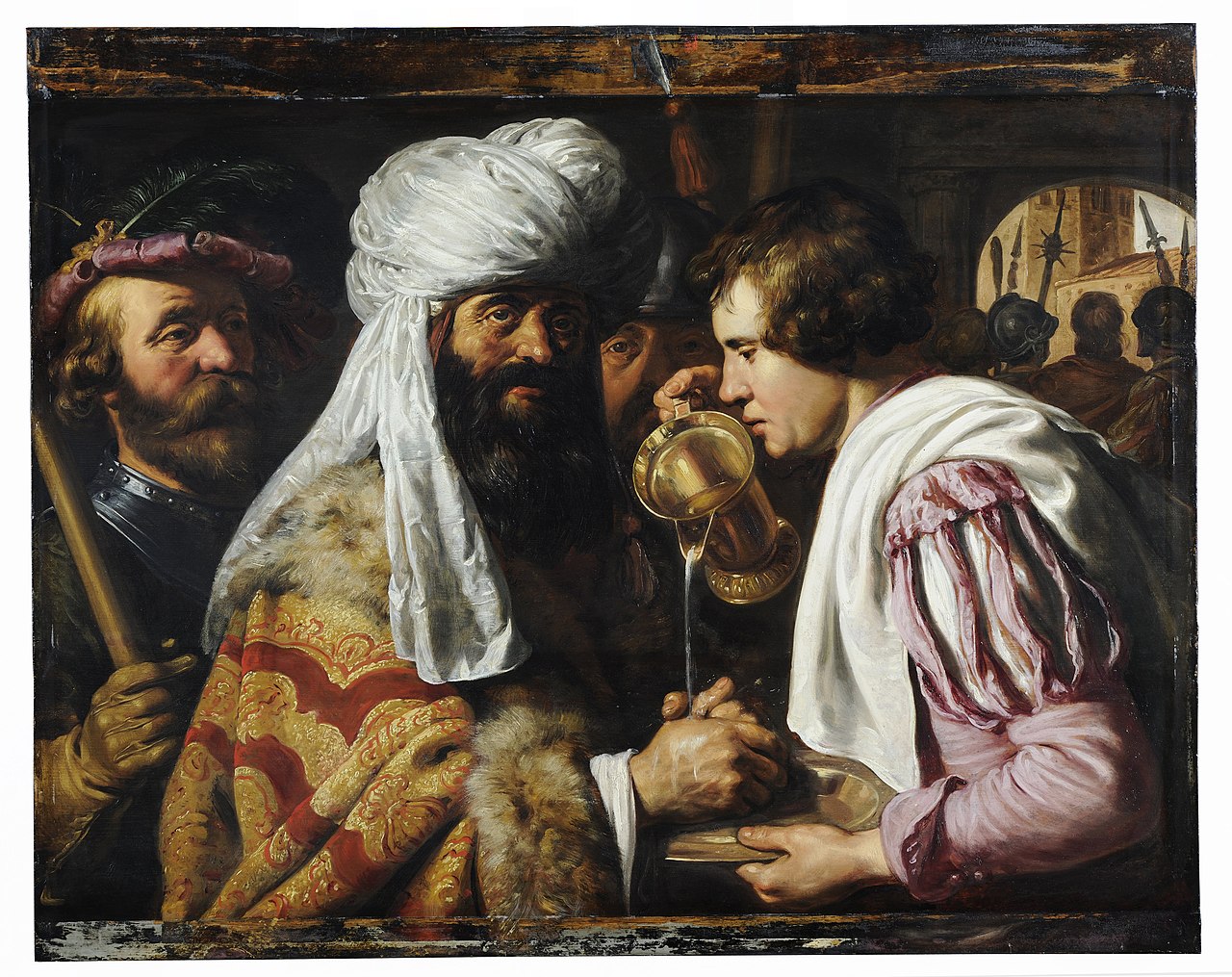Pilate washing his hands in innocence by Jan Lievens, Matthew 27:11-26, Bible.Gallery
Artwork Description

"Pilate Washing His Hands in Innocence" by Jan Lievens is a captivating and thought-provoking artwork that delves into a pivotal moment in the biblical narrative from Matthew 27:11-26. Created between 1624 and 1625, this oil on panel painting measures 106cm by 74cm, allowing for an intimate and detailed portrayal of the scene.
The painting depicts the historical figure of Pontius Pilate, the Roman governor of Judea, as he faces the moral dilemma of whether to condemn Jesus Christ to death. The composition is centered around Pilate, whose imposing figure dominates the scene. He stands at a lavabo, a basin used for ceremonial handwashing, signifying his attempt to cleanse himself of the responsibility for Jesus' fate. This pivotal moment captures the tension between Pilate's inner turmoil and his desire to distance himself from the gravity of the situation.
Jan Lievens' artistic style is characterized by its meticulous attention to detail and the expressive use of light and shadow. The painting's composition is carefully arranged to draw the viewer's eye to Pilate's face, which is filled with conflicting emotions. The play of light and shadow on his features adds depth and complexity to his expression, leaving the viewer to ponder the weight of his decision.
The use of color in the painting is subtle yet evocative. Soft, earthy tones dominate the scene, contributing to the solemn and introspective atmosphere. The background is kept relatively simple, allowing the focus to remain on Pilate and his inner turmoil.
One striking element of the painting is Lievens' skillful portrayal of Pilate's hands as he washes them. The delicate rendering of the hands not only adds a sense of realism but also serves as a powerful symbol of the governor's attempt to absolve himself of guilt. The act of washing hands, which traditionally symbolizes innocence, stands in stark contrast to the weight of the decision Pilate is about to make.
Intriguingly, the artwork also leaves space for the viewer's interpretation and reflection. The ambiguity of Pilate's expression and the complexity of his emotions invite contemplation on the themes of moral responsibility, justice, and the consequences of one's actions.
In conclusion, "Pilate Washing His Hands in Innocence" by Jan Lievens is a masterful and emotive artwork that delves into the psychological struggle of a historical figure facing a momentous decision. Through Lievens' meticulous attention to detail and skillful use of light and shadow, the painting brings to life the inner conflict of Pontius Pilate. The subtle yet evocative use of color and symbolism adds depth and complexity to the narrative, prompting viewers to reflect on themes that resonate across time and cultures. This artwork remains a compelling and enduring representation of a crucial moment in biblical history.